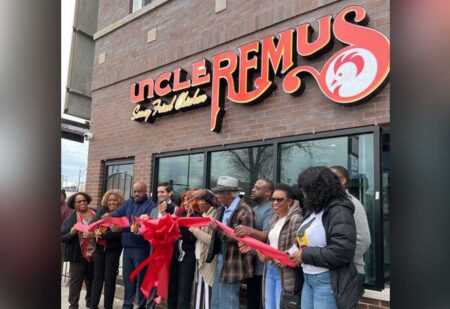It was only 2 1/2 months ago that Illinois state Rep. Bob Rita took the witness stand in the “ComEd Four” trial and memorably told a federal jury how ex-House Speaker Michael Madigan ruled his fellow Democrats “through fear and intimidation.”
On Wednesday, Rita, a 20-year veteran of the House whose district encompasses parts of Chicago’s South Side and south suburbs, is scheduled to take another turn as a government witness, this time in the bribery trial of politically connected businessman James Weiss, a son-in-law of former Cook County Democratic boss Joseph Berrios.
Rita, who has not been charged with wrongdoing, is expected to tell the jury case that his colleague, then-state Rep. Luis Arroyo, talked to him about legislation expanding the legality of sweepstakes gaming machines.
The indictment alleges Weiss paid bribes to Arroyo beginning in November 2018 in exchange for Arroyo’s promotion of legislation beneficial to Weiss’ company, Collage LLC, which specialized in the sweepstakes machines. The bribes were paid via off-the-books lobbying payments to Arroyo’s consulting firm, Spartacus 3 LLC, according to the charges.
Rita, who was on Madigan’s House leadership team at the time of the alleged scheme, is the only sitting elected official expected to testify in Weiss’ trial, which began Monday.
His account could have added importance because Madigan had made him a chief sponsor of the state’s massive gambling overhaul at the center of the indictment.
Rita testified in the “ComEd Four” case on March 20 he’d received a “non-target letter” from the U.S. attorney’s office in exchange for his testimony in that trial, which ended with sweeping guilty verdicts on all counts.
Also slated to take the witness stand Wednesday is former state Sen. Tony Munoz, a Chicago Democrat, who also was allegedly approached by Arroyo about the sweepstakes games legislation.
Weiss, 44, who is married to former state Rep. Toni Berrios, is charged in a superseding indictment filed in October 2020 with bribery, wire fraud, mail fraud and lying to the FBI. He has pleaded not guilty.
The jury of eight women and four men was empaneled at the Dirksen U.S. Courthouse Tuesday afternoon after more than a day of questioning in U.S. District Judge Steven Seeger’s 23rd Floor courtroom.
The case centers on the largely uncharted world of sweepstakes machines, sometimes called “gray machines,” which allow customers to put in money, receive a coupon to redeem for merchandise online and then play electronic games like slot machines.
Since the machines can be played for free, they are not considered gambling devices. Critics, however, contend the unregulated devices, which operate in cities, including Chicago, that have banned video gambling, are designed to skirt the law.
In her opening statement, to the jury, Assistant U.S. Attorney Christine O’Neill said that Weiss desperately wanted the state’s massive gambling expansion bill to include language explicitly legalizing sweepstakes machines, but it was left out of the proposal in the 2019 spring session.
“Instead of giving up, the defendant doubled down,” she said.
O’Neill said Weiss then agreed to pay monthly bribes to get a deal done, first to Arroyo and later to then-state Sen. Terry Link, who was a chief sponsor of the gambling bill in the Senate.
“In 2019, ladies and gentlemen, the defendant had two sitting politicians on his company’s payroll,” O’Neill said in her opening statement. “It was all to benefit his business … the sweepstakes machines and his own bottom line.”
Afternoon Briefing
Daily
Chicago Tribune editors’ top story picks, delivered to your inbox each afternoon.
Weiss’ attorney, Sheldon Sorosky, called it “1,000% false” that Weiss ever tried to bribe anybody, saying he agreed only to pay Arroyo as a legitimate consultant.
It was Link, who was secretly cooperating with the FBI in the hopes of a break on his tax evasion case, who introduced the idea of a bribe during a private discussion with Arroyo, Sorosky said in his opening remarks to the jury.
“There isn’t any dispute concerning the payments that the government says Weiss paid,” Sorosky said. “We are saying those were not bribes, and those were not payments to deprive the people of the state of Illinois of the honest services of certain legislators.”
Link, who resigned from office before pleading guilty to unrelated tax evasion charges, could take the witness stand as soon as Wednesday afternoon.
It’s a trial filled with political intrigue, both in the lineup of current and former elected officials expected to testify as well as the backdrop of ongoing federal investigations swirling around Weiss’ associates, including the Cook County assessor’s office that Joseph Berrios once helmed.
One name not on the witness list is Arroyo, who pleaded guilty to his role in the alleged scheme but did not agree to cooperate with prosecutors. Seeger sentenced Arroyo to nearly five years in prison last year, calling him a “corruption superspreader.”







